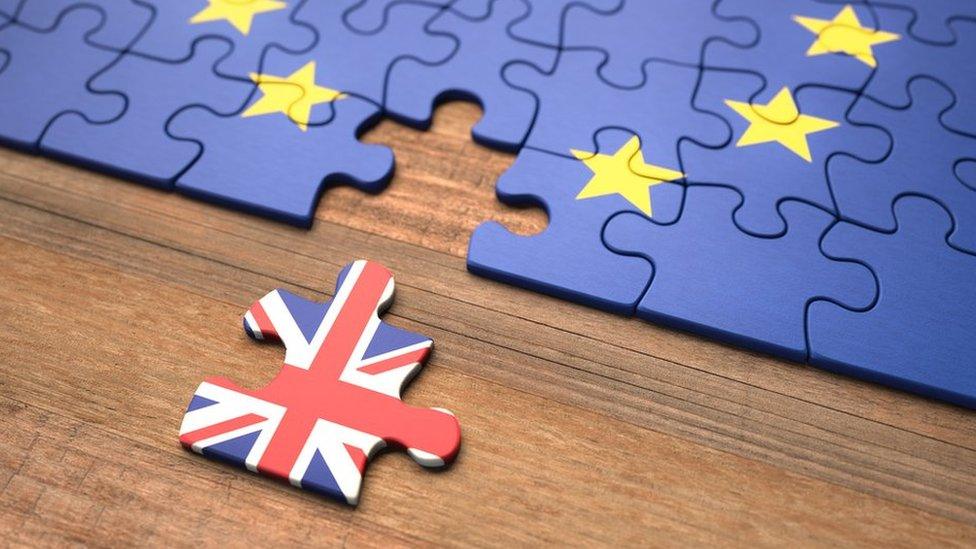Brexit: NI businesses 'not ready for Irish Sea border'
- Published
- comments
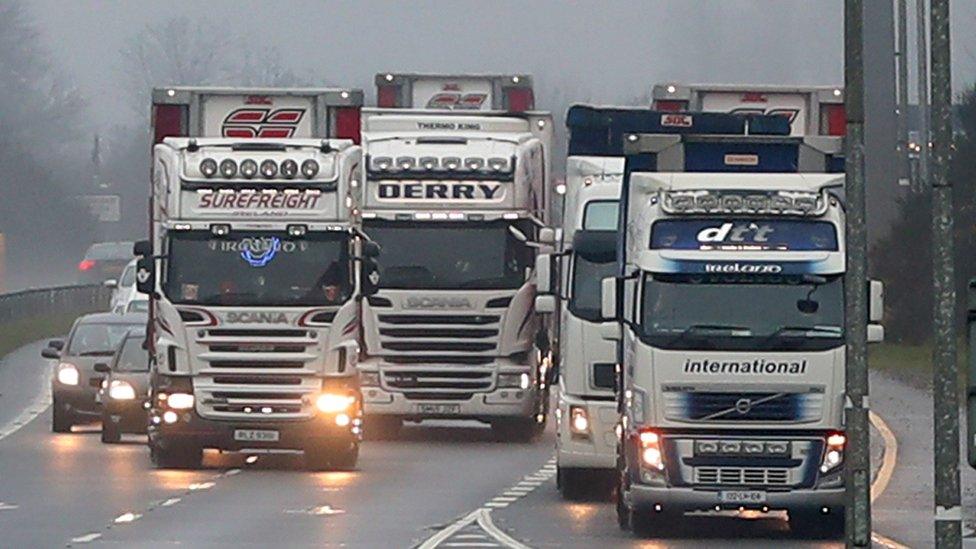
Northern Ireland businesses will not be ready for the new Irish Sea border in January and need a further transition period, industry leaders have said.
Representatives from retail, manufacturing and farming made the comments to MPs on Wednesday.
From 1 January, Northern Ireland will stay in the EU single market for goods but the rest of the UK will leave.
That will mean a new range of checks, controls and paperwork on trade between Great Britain and Northern Ireland.
Some of these changes will apply even if the UK and EU reach a trade deal.
The business leaders say some sort of phasing in or grace period will be needed whether there is a deal or not.
'Won't work, won't stick'
Addressing MPs on the issue of the Irish Sea border, Stephen Kelly from Manufacturing NI said: "Northern Ireland's business community will not be ready for the first of January, quite simply."
He said there needed to a grace period in which the UK and EU could "provide comfort" that goods could keep moving.
He warned the EU that without flexibility the Northern Ireland deal "won't work and won't stick".
Those concerns were echoed by Aodhán Connolly from the NI Retail Consortium.
He said business was being given six weeks to implement changes which would normally take two years.
He also said there needed to be some sort of phase in period: "You can call it the pink fluffy bunny period... we don't care what you call it."
The implementation of the Northern Ireland deal, which formed part of last year's withdrawal agreement, is being overseen by a Joint Committee of the EU and the UK.
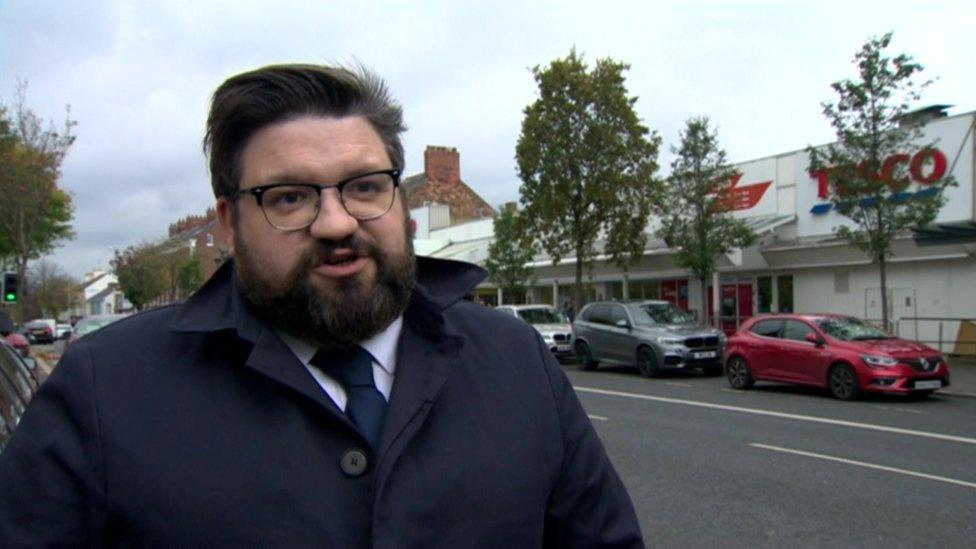
Aodhán Connolly said business was being given six weeks to implement changes which would normally take two years
Its work is separate from the UK-EU trade negotiation, but Mr Connolly said it appears the work of the committee has being slowed down by the "political machinations" of the trade talks.
"What we feel is happening at the moment is the political effort is going into the free trade agreement and because of that neither side wants to give flexibilities on Northern Ireland because it can be seen as leverage," he said.
He expressed hope that if a trade deal can be reached then the talks on Northern Ireland issues can be intensified.
Victor Chestnutt from the Ulster Farmers' Union said it was "only now sinking in" that Northern Ireland would be treated differently from the rest of the UK.
He said many farmers had been unaware until very recently that they would need to register for what is known as an EORI number to continue buying equipment from suppliers in Great Britain.
Mr Kelly said a food and veterinary agreement would be essential to reduce checks on food shipments between GB and NI.
He said it could reduce physical checks on goods so that no more than nine lorries a day would have to have their contents inspected.
Crime and security
Meanwhile, Northern Ireland's justice minister warned of a potential organised crime "bonanza" on the Irish border in the event of a no-deal Brexit.
On Wednesday, Naomi Long gave evidence to a Northern Ireland Affairs Committee inquiry into post-Brexit policing and security.
Discussing the future security situation, Mrs Long said any tariff differences between jurisdictions would fuel the black market economy.
She said it would be "a failure of negotiation" if there is no agreement on future security arrangements when the transition period ends on 31 December.
The justice minister's concerns echo remarks made by senior police officers.
Measures like the European Arrest Warrant could be lost within weeks in the absence of a UK-EU deal.
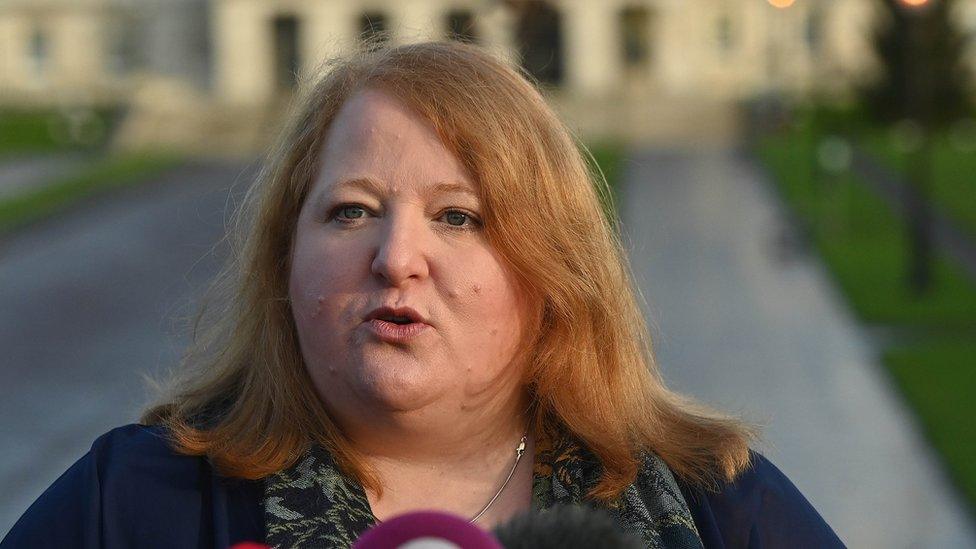
Naomi Long has warned of a potential organised crime "bonanza" on the Irish border in the event of a no deal Brexit
Failure to reach an agreement would mean the UK and Ireland would likely need a new bi-lateral treaty to put security co-operation on a legal footing.
Extradition of suspects would also be a much slower process, relying on existing legislation from decades ago.
"We can't combat 2020 crime and security threats using 1950 tools.
"It's imperative the UK and EU agree a future security partnership," Mrs Long added.
"However even if they do, it will not have the same breadth of measures to which we currently have access."
She said any new regulation and tariff arrangements could increase crimes such as smuggling.
"Differentials across borders will lead to a more ripe environment for organised crime and ultimately in Northern Ireland that feeds paramilitarism and terrorism."
- Published17 November 2020

- Published9 November 2020
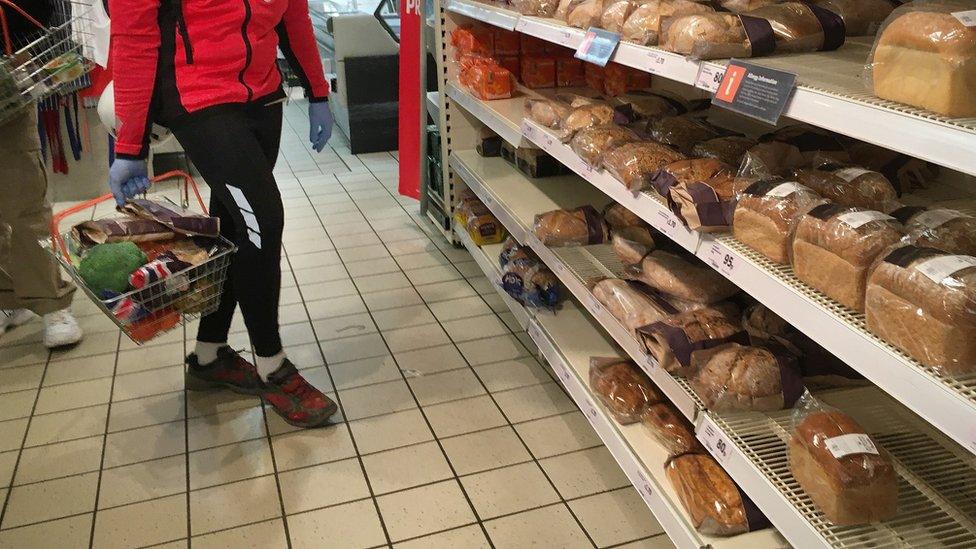
- Published6 November 2020
